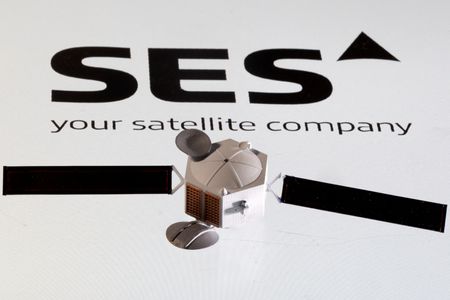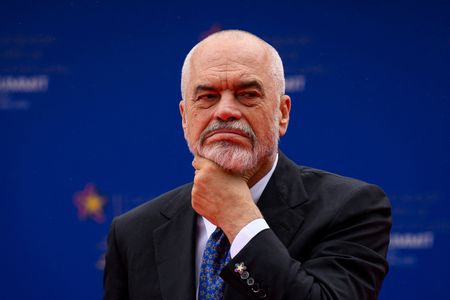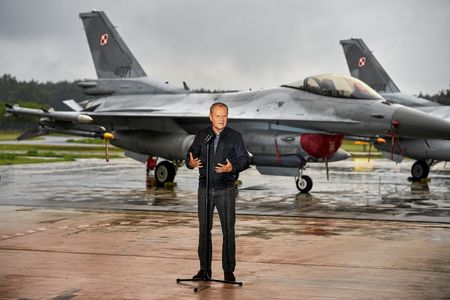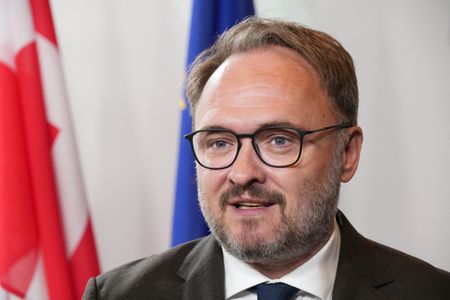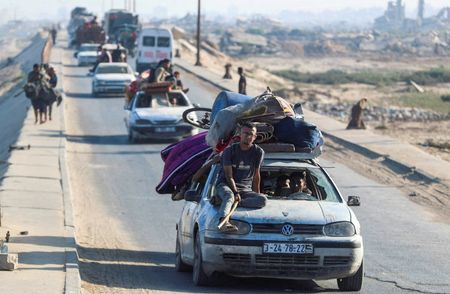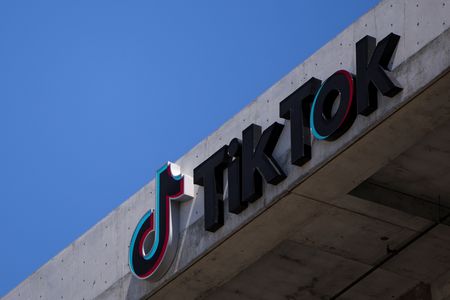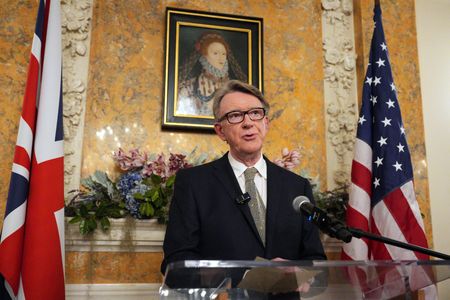By Gianluca Lo Nostro
(Reuters) -European satellite company SES is in talks with EU and other governments about complementing services provided by Elon Musk’s Starlink, its CEO told Reuters, as the region looks for home-grown options for its space-based communications.
As tensions with the U.S. over Ukraine escalated, the European Union in March contacted the bloc’s satellite operators – including SES and France’s Eutelsat – to see how they might contribute if Washington cut Kyiv’s access to Starlink.
The European Commission also suggested last month that the EU should fund access to EU-based satellite operators for Kyiv.
SES CEO Adel Al-Saleh told Reuters that discussions had branched out to consider wider options.
“Now the discussions are much more strategic in nature They’re much more mid-term, long-term. And what we’re seeing is all of the European governments are serious about increasing their defence spending,” he said in an interview.
“There are alternatives, not to completely replace Starlink, that’s not possible, but to augment and complement Starlink,” he added.
SES, which operates a multi-orbit fleet of about 70 satellites, has contracts with NATO and the Pentagon for secure government and military satellite communications.
Besides geostationary satellites, the Luxembourg-based company has more than 20 medium Earth orbit (MEO) satellites, with more planned for launch over the coming years, and a goal of reaching 100 at some point, according to Al-Saleh.
These satellites sit 8,000 km (4,970 miles) above Earth, sending data faster than traditional ones and providing high-speed internet for government communications and consumers in underserved areas.
But stiff competition from players such as Starlink, Amazon’s Kuiper and China’s SpaceSail, which plan to have thousands of satellites in low-Earth orbit, is raising concerns in Europe over its reliance on foreign solutions.
“The most significant demand (for us) is European nations investing in space, much more than what they did before,” Al-Saleh said.
Still, nations building their own satellite constellations are not enough to create a global network with global resilience capability, he said.
“It is not right to say they just want to avoid Starlink or the Chinese. They want to avoid being dependent on one or two providers. They want to have flexibility.”
(Reporting by Gianluca Lo Nostro and Alessandro Parodi. Editing by Mark Potter)

